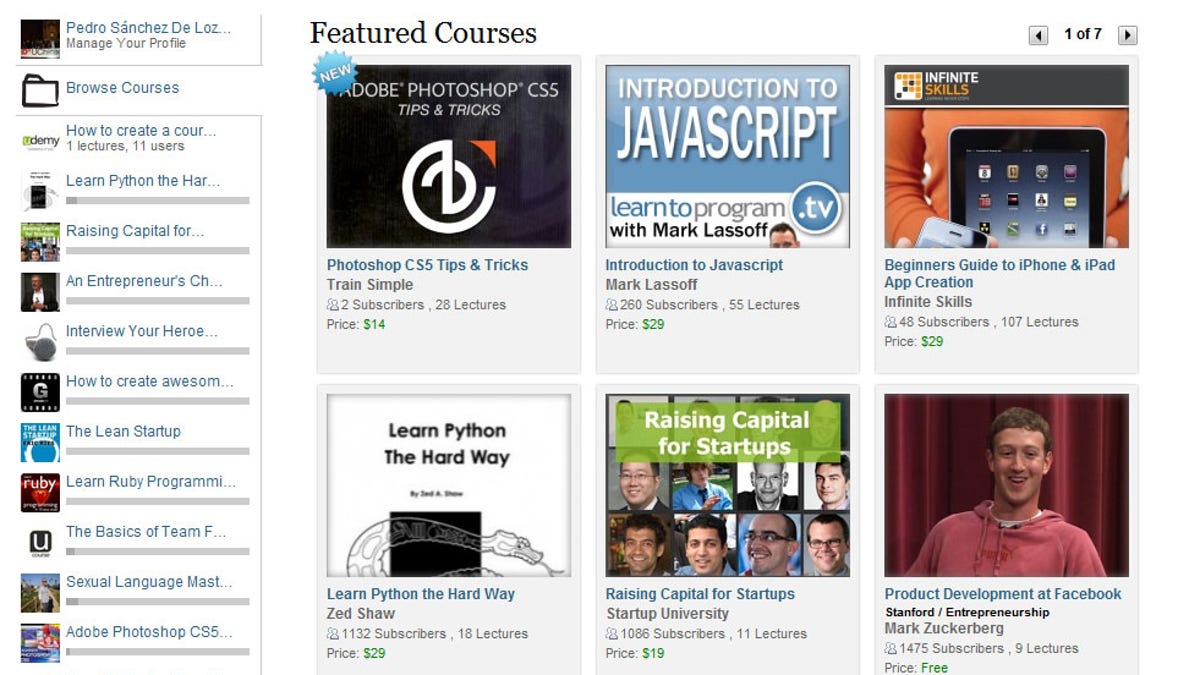Instructional portal Udemy raises $3 million
Udemy, a startup that offers more than 6,000 online courses on a range of subjects, has won backing from Lightbank and other investors.
Udemy, a site that lets anyone create and upload courses, today announced it has raised $3 million in a funding round.
Udemy is trying to democratize education by creating a central place for anyone to teach and learn online. The San Francisco-based startup, which launched in May 2010, now offers more than 6,000 courses on everything from how to develop iPhone apps to how to speak Serbian. So far, the most popular courses are in technology, but that's changing as more people from different fields join the site.
Lightbank, an investment firm started by Groupon co-founders Eric Lefkosfky and Brad Keywell, led the round. MHS Capital and 500 Startups also participated.
Gagan Biyani, Udemy's president and a former writer for TechCrunch, said what's happening with online education is akin to what happened with blogs and traditional publishers. As tools were created that made it easy to publish, suddenly anyone with a keyboard could create a big presence. Biyani argues that the same is true for education: teachers no longer needs schools or other institutions to present terrific courses. Instead, they can offer courses online with video, audio, and slides--for free or for a fee. If people like a course, it can succeed.
"Our core value is that we've created a marketplace that anyone can enter," Biyani said. It's "just as WordPress created a lot of competitors to The New York Times."
About 90 percent of the courses on Udemy are free. When an instructor does charge, Udemy pays the instructor 70 percent of the revenue. The result, Biyani said, is that dozens of instructors are making $5,000 to $10,000 a month through the site. All told, he said that Udemy has paid out about $500,000. It started offering paid courses this year.
Biyani won't disclose how many users (paying or otherwise) the site has. Its competitors include sites such as Lynda.com, which sells instructional videos for tech products like Photoshop, and even YouTube, which has short videos explaining everything imaginable.
This round of funding follows an initial $1 million round that Udemy raised from angel investors in August 2010.


